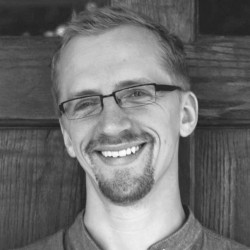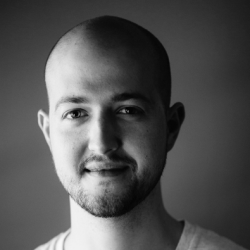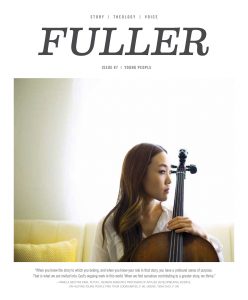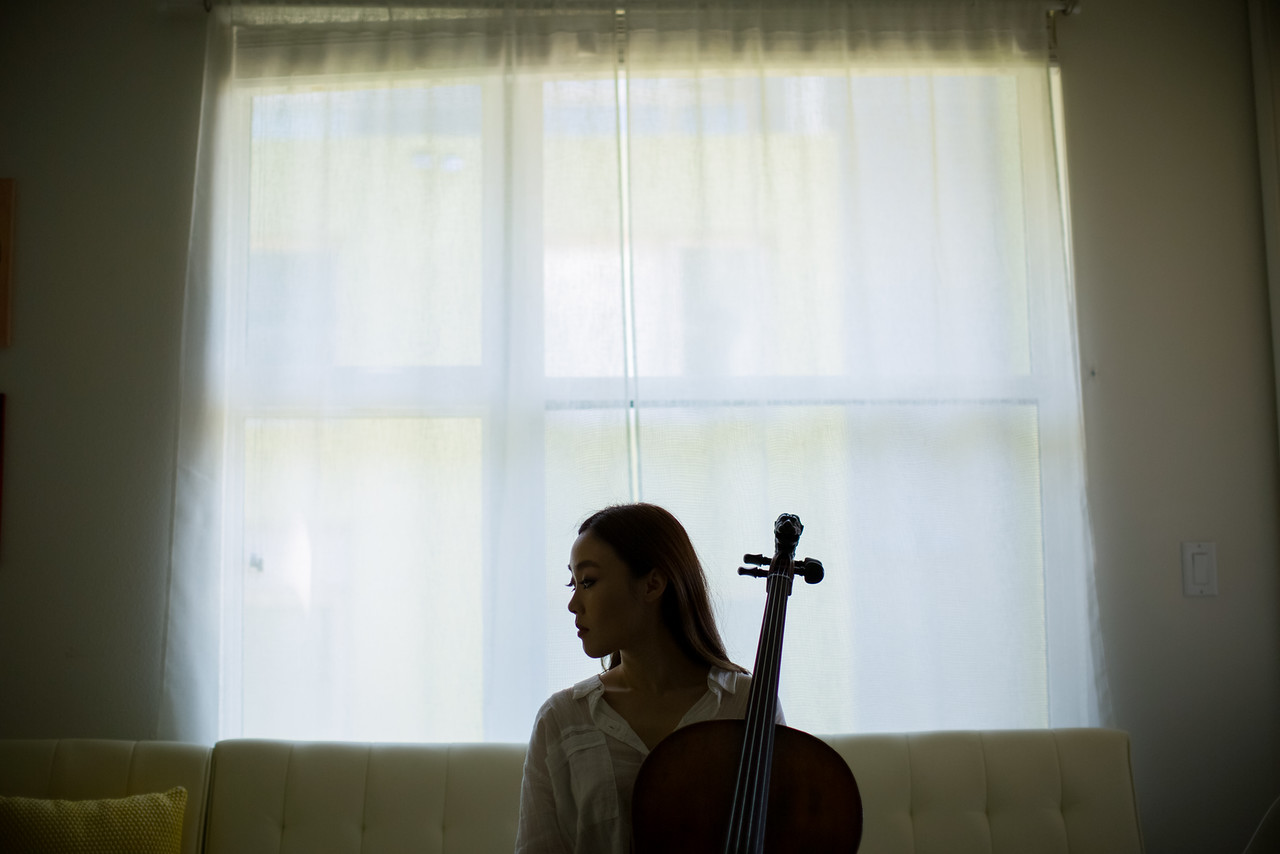
As a musician at a prestigious conservatory in Berlin, Germany, Yena Choi [MACL ’15] practiced almost ten hours a day in a room no bigger than a broom closet. With the shades drawn on the only window, she would rehearse scales, refine her posture, and do the hard work of mastering her instrument—a 250-year-old Italian cello given to her by her first instructor. “Practicing like that was almost monastic,” she remembers.
Her work ethic came at a cost. Yena had played cello for almost a decade, “but it added a dynamic in my family that I didn’t like,” she remembers. “My parents really pushed me to work hard and practice a lot. It wasn’t a blessing back then. It was more forced, and I rarely enjoyed it.” When she wasn’t in the practice room, she was often ostracized by envious students. “I felt above everyone else,” she says. “It was a way to protect myself—the cello was the only thing I could master!”
Halfway through her education, her mother left Germany to return to Yena’s father in South Korea, and Yena was more alone than ever before. “I was by myself in a foreign city studying an instrument I still didn’t like,” she says. “I felt so abandoned, but I had to keep going.” Her drive to succeed was beginning to affect her physically. Under the stress of practice, Yena was diagnosed with tuberculosis, and the medicine meant to help her heal had the unintended side effect of depression. The complicated sickness forced her to drop out of ensembles and become a part-time student. The cello, no longer a source of pride, had become the cause of both resentment and exhaustion. Needing space to heal and time away from her instrument, Yena decided to travel to California to be with extended family.
While she was traveling through the Bay Area, she decided to visit her cousin, Fuller alumnus and youth minister Jina Park [MDiv ’04]. At Jina’s invitation, Yena attended a music event markedly different from what she knew at the conservatory: a worship service. The musicians, playing together without any sense of competition, were creating music in service of something greater than themselves. She felt a shift in her own heart, a moment she sees as the beginning of a “long season of restoration.”
After finishing at the conservatory in Berlin, Yena decided to move to California to be near her parents—who had since moved there—and take a break from pursuing the cello so rigorously. It was also a chance for her to do some soul- searching. “I needed my own theological perspective,” she says, explaining her decision to study at Fuller in Pasadena.
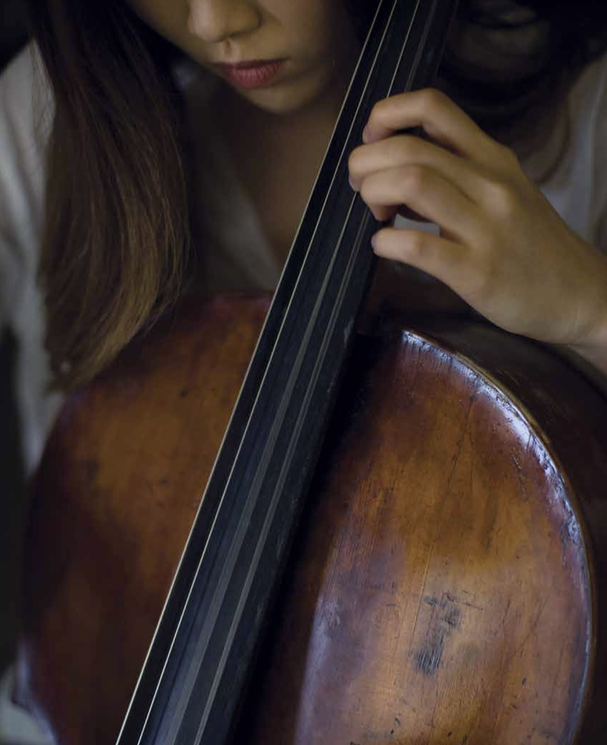 When she entered seminary, she was disoriented by yet another new language. While her new friends encouraged her to integrate her cello playing with ministry, she wasn’t sure she wanted to play at all anymore, plagued by questions of whether classical music could make sense in a sanctuary. It was Edwin Willmington, Fuller’s composer-in-residence and director of the Brehm Center’s Fred Bock Institute of Music, who gave her the freedom to explore the relationship between theology and music on her own terms. “I had room to reflect on what worship is in my own setting as a classical musician,” she says.
When she entered seminary, she was disoriented by yet another new language. While her new friends encouraged her to integrate her cello playing with ministry, she wasn’t sure she wanted to play at all anymore, plagued by questions of whether classical music could make sense in a sanctuary. It was Edwin Willmington, Fuller’s composer-in-residence and director of the Brehm Center’s Fred Bock Institute of Music, who gave her the freedom to explore the relationship between theology and music on her own terms. “I had room to reflect on what worship is in my own setting as a classical musician,” she says.
At Willmington’s encouragement, Yena also began playing with the All-Seminary Chapel worship music team. While the new community was a refreshing change from her solitary years in the practice room, rehearsing was markedly different in technical approach and purpose from her previous training. “Classical music and worship music are two totally different musical languages. At first, I couldn’t understand what the team was saying,” she remembers. “Even though the basics were similar, the terms and approach were different.”
With much less in the way of musical notation and more freedom to improvise, Yena was encouraged to trust her fellow musicians: “You had to depend on one another in a different way.” With their encouragement, she began to value her musical ability as a gift to share with others. She was also becoming attuned to a new spiritual depth in music: “I learned that the song itself has to be connected with God. I began to see that everything is an interaction and the way I communicate with God.”
As her worlds of classical music and theology began to merge, Yena had an important choice to make. While some expected her to play her cello primarily in worship settings, Yena missed the world of classical music she had left behind. She sensed that playing exclusively for traditional worship services would limit her. Rather than bringing music to the church, Yena felt drawn to do the opposite, concluding that “classical music is my ministry.”
That conviction quickly found expression when the tragic shooting at Sandy Hook occurred and Yena decided to perform a benefit concert to raise money for the affected families. One of her classmates from Germany—a talented concert pianist—and a ballet dancer joined her, and Yena’s classical and theological training met in a profound way. Yena realized that words fail to express the depth of grief at such a tragedy, so she was able to translate grief through music: “I was there to intercede with my music. My songs could be a lament. It wasn’t an experience that I could explain with words, but I could somehow feel it in the music.”
Now Yena wants to help other musicians intercede for audiences in the same way. She’s learned that, more than performance, rehearsal is the space where she is most excited to minister: “I enjoy the rehearsal more than the performance itself. I like the arguing and communicating with other people about the music itself; you get to experience other people’s imaginations.”
In her sunlit apartment, Yena still practices the cello. While there are days she leaves it in the case out of frustration, she has found a renewed commitment to the instrument. One day she hopes to be a music professor, but in the meantime, she’s preparing for a performance with members of the Los Angeles Philharmonic. “The best way for me to understand God is through this cello; it’s an instrument that opens up to the order of creation. It’s helped me find my voice, and I want to help others find theirs, too.”
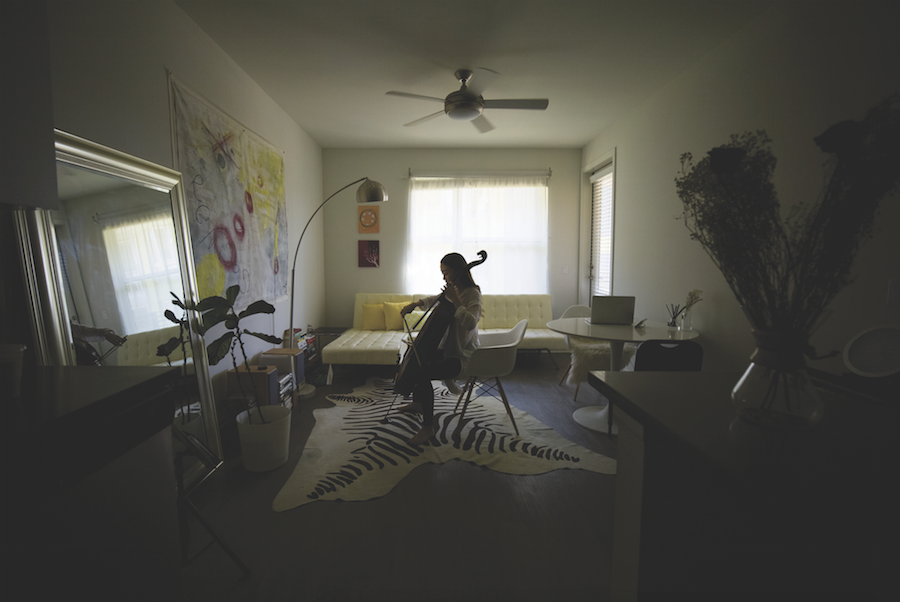
+ Listen to Yena Choi play cello for the Brehm New Music Initiative, a recording project to create new music for the church composed by Fuller’s composer-in-residence Edwin Willmington.

+ Yena was gracious enough to share a live recording from one her performances at a local church. We suggest listening this selection from Bach’s Suite No. 3 in C major while reading.
음악가 최예나[MACL ’15학번]는 독일 베를린의 한 명문 음악 학교 재학 시절, 벽장 남짓한 크기의 방에서 거의 하루 열 시간씩 연주했습니다. 하나뿐인 창은 블라인드로 가린 채 예나는 첫 번째 선생님께 물려받은 250년 전 이탈리아에서 제작된 첼로에 통달하기 위해서 음계를 연습하고 자세를 교정하는 고된 노력을 반복했습니다. “당시 연습은 거의 수도원 생활과 다름없었어요” 라며 예나는 그때를 떠올립니다. 첼로를 향한 예나의 이런 노력에는 대가가 따랐습니다. 당시 예나는 첼로 연주를 시작한 지 10년 가까이 되었는데 “첼로 때문에 가족과의 관계에 제가 싫어하는 변화가 생겼어요”라며 회상합니다. “부모님은 제게 열심히 노력하고 더 연습하라고 심하게 다그치셨어요. 당시에는 축복이 아니었어요. 강요에 더 가까웠고 즐겁게 연주한 적이 거의 없었어요.” 연습실에서 나오면 예나는 시기하는 학생들에게 따돌림당하기 일쑤였습니다. 예나는 말합니다. “나는 다른 누구보다 더 뛰어나다고 생각했어요. 그건 일종의 저 자신을 보호하는 방법이었어요. 제가 통달할 수 있는 건 오로지 첼로뿐이었으니까요!”
음악 공부가 절반 정도 진행되었을 때 예나의 어머니는 독일을 떠나 한국의 아버지께로 가셨고 예나는 전보다 더 외로워졌습니다. “저는 혼자 외국의 낯선 도시에 남아 여전히 좋아하지 않는 악기를 배우고 있었어요. 정말로 버려진 것 같은 기분이었지만 그래도 계속하는 수밖에 없었어요.” 해내고 말겠다는 계속된 노력은 예나의 신체에 무리를 주기 시작했습니다. 연습으로 인한 스트레스로 인해예나는결핵진단을받았고결핵치료약은의도치않게 우울증이라는 부작용을 가져왔습니다. 이 합병증으로 인해 예나는 합주단에서 나와야 했고 수강하는 학점 수도 줄이게 되었습니다. 한때 자부심의 근원이었던 첼로는 이제 원한과 기력소진을 동시에 가져다주었습니다. 한동안 첼로를 떠나 몸을 회복할 장소가 필요했던 예나는 가족이 있는 캘리포니아로 여행을 떠나야겠다 마음먹었습니다.
샌프란시스코를 여행하던 중 예나는 사촌을 방문하게 되었는데, 그는 풀러 졸업생이자 청소년 사역자인 박지나[MDiv ’04학번] 였습니다. 지나의 초청으로 예나는 음악 학교에서 경험했던 것과는 확연히 다른 음악 행사에 참석하게 되었는데, 바로 예배였습니다. 음악가들은 전혀 경쟁의식 없이 함께 연주하며 그들 자신을 초월하는 무언가를 위해 음악을 창조하고 있었습니다. 예나는 마음속에서 어떤 변화가 일어나는 것을 느꼈는데, 훗날 그 순간이 ‘기나긴 회복기’의 시작이었음을 알게 되었습니다.
베를린 음악 학교를 마친 뒤 예나는 가족 가까이에 지내는 한편 엄격한 첼로 수련으로부터 휴식을 취할 거주지로 캘리포니아를 선택했습니다. 그것은 동시에 자기 성찰의 시간을 보낼 기회이기도 했습니다. 예나는 패서디나의 풀러에서 공부할 결심을 하게 된 이유를 설명하면서 “저 자신의 신학관이 필요했어요”라고 말합니다.
 신학교에 입학한 예나는 또 다른 종류의 새로운 언어에 당혹감을 느꼈습니다. 신학교에서 만난 친구들은 첼로 연주를 사역과 연결해보라고 권면했지만, 예나는 자신이 연주를 더 하고 싶어 하는지도 확실치 않은 데다 클래식 음악이 예배당에 어울리는지 등의 질문에 머리가 복잡했습니다. 그때 풀러에서 가르치며 브렘 센터(Brehm Center) 산하 프레드 복 음악연구소(Fred Bock Institute of Music) 소장으로 있는 작곡가 에드윈 윌밍턴(Edwin Willmington)이 예나에게 자유롭게 자신의 방식으로 신학과 음악의 관계를 탐색해볼 수 있도록 도움을 주었습니다. 예나는 이렇게 말합니다. “클래식 음악가로서 제 상황에서 예배란 무엇인지 고찰해 볼 여지를 갖게 되었어요.”
신학교에 입학한 예나는 또 다른 종류의 새로운 언어에 당혹감을 느꼈습니다. 신학교에서 만난 친구들은 첼로 연주를 사역과 연결해보라고 권면했지만, 예나는 자신이 연주를 더 하고 싶어 하는지도 확실치 않은 데다 클래식 음악이 예배당에 어울리는지 등의 질문에 머리가 복잡했습니다. 그때 풀러에서 가르치며 브렘 센터(Brehm Center) 산하 프레드 복 음악연구소(Fred Bock Institute of Music) 소장으로 있는 작곡가 에드윈 윌밍턴(Edwin Willmington)이 예나에게 자유롭게 자신의 방식으로 신학과 음악의 관계를 탐색해볼 수 있도록 도움을 주었습니다. 예나는 이렇게 말합니다. “클래식 음악가로서 제 상황에서 예배란 무엇인지 고찰해 볼 여지를 갖게 되었어요.”
윌밍텅의 권유로 예나는 또 채플 찬양팀에서 연주를 시작했습니다. 지난 수년간 연습실에서 홀로 연주했던 예나에게 이 새로운 공동체는 상쾌한 변화를 가져다주었습니다. 다만 찬양팀 연습은 기교나 목적에 있어 이전에 예나가 받았던 훈련과 확연히 달랐습니다. “클래식 음악과 예배 음악은 음악적으로 완전히 다른 언어예요. 처음에는 연주팀이 쓰는 말을 알아들을 수 없었어요. 기본은 비슷했지만 용어와 접근법이 달랐거든요.”라며 예나는 그때를 회상합니다.
기보법을 정확히 따르기보다는 동료 음악가들을 믿고 더 자유롭게 연주해도 된다는 말에 예나는 자신감을 얻었습니다. “우리는 다른 방식으로 서로를 의지해야 했어요.” 동료들의 격려 덕분에 예나는 자신의 음악 재능이 다른 이들과 나누어야 할 소중한 선물임을 깨닫기 시작했습니다. 그뿐만 아니라 음악 안에서 새롭게 발견한 영적 깊이에 점차 조율되어갔습니다. “제가 배운 것은 곡 그 자체가 하나님과 연결되어야 한다는 사실이었어요. 모든 것이 하나님과의 교감이며 제가 하나님과 소통하는 방식이라는 것을 깨닫기 시작했습니다.”
클래식 음악의 지평과 신학의 지평이 하나로 어우러지기 시작하면서 예나는 중요한 선택을 해야 했습니다. 어떤 사람들은 예나가 일차
적으로 예배의 자리에서 첼로를 연주했으면 했지만, 예나는 떠나온 클래식 음악의 세계가 그리웠습니다. 전통적인 예배를 위해서만 연주한다는 것은 예나에게 제약처럼 느껴졌습니다. 음악을 교회로 가져오는 대신 예나는 그 반대쪽에 마음이 끌렸는데, 결국 ‘클래식 음악이 나의 사역’이라는 결론에 도달했습니다.
그 같은 확신은 곧바로 실행에 옮기게 되었는데 샌디훅(Sandy Hook) 초등학교 총격 사건이라는 참사가 일어났을 때 예나는 피해 가족을 위한 자선 연주회를 열기로 했습니다. 함께 수업을 듣는 친구 중에 독일에서 온 유능한 콘서트 피아노 연주자와 발레 무용가가 뜻을 함께해서, 예나의 클래식 훈련과 신학 훈련은 심오한 방식으로 만나게 되었습니다. 예나는 그 같은 비극으로 인한 슬픔의 깊이는 언어로 표현할 수 없다는 사실을 깨달았는데, 슬픔을 음악을 통해 표현할 수는 있을 것 같았습니다. “저는 제 음악으로 중보하기 위해 그 자리에 있었습니다. 제가 연주한 곡들은 애가라고 할 수 있어요. 그 경험을 말로 설명할 수는 없지만 어째서인지 음악 속에서 그 사실을 느낄 수 있었어요.”
이제 예나는 다른 음악가들도 동일한 방식으로 청중을 위해 중보하도록 돕고 싶어 합니다. 예나는 공연보다는 연습이야말로 자신이 가장 즐겁게 사역할 수 있는 장소라는 사실을 알게 되었습니다. “저는 공연 자체보다 연습을 더 좋아해요. 음악 자체를 놓고 사람들과 토론하고 소통하는 것이 좋아요. 다른 사람들의 상상력을 경험하게 되거든요.”
예나는 햇빛 가득한 아파트에서 여전히 첼로를 연주합니다. 때론 낙심해서 첼로를 케이스에 넣어둘 때도 있지만, 첼로를 향한 한층 새로운 헌신을 다짐하게 되었습니다. 예나는 언젠가 음악 교수가 되기를 희망하며, 현재는 로스앤젤레스 필하모닉 단원들과 협연을 준비하고 있습니다. “제가 하나님을 가장 잘 이해하는 방법은 이 첼로를 통해서예요. 첼로는 창조 질서를 찾아가도록 문을 열어주는 악기예요. 첼로는 제게 저의 목소리를 찾도록 도와주었고, 이제는 다른 이들이 그들의 목소리를 찾도록 돕고 싶습니다.”
+ Listen to Yena Choi play cello for the Brehm New Music Initiative, a recording project to create new music for the church composed by Fuller’s composer-in-residence Edwin Willmington.

